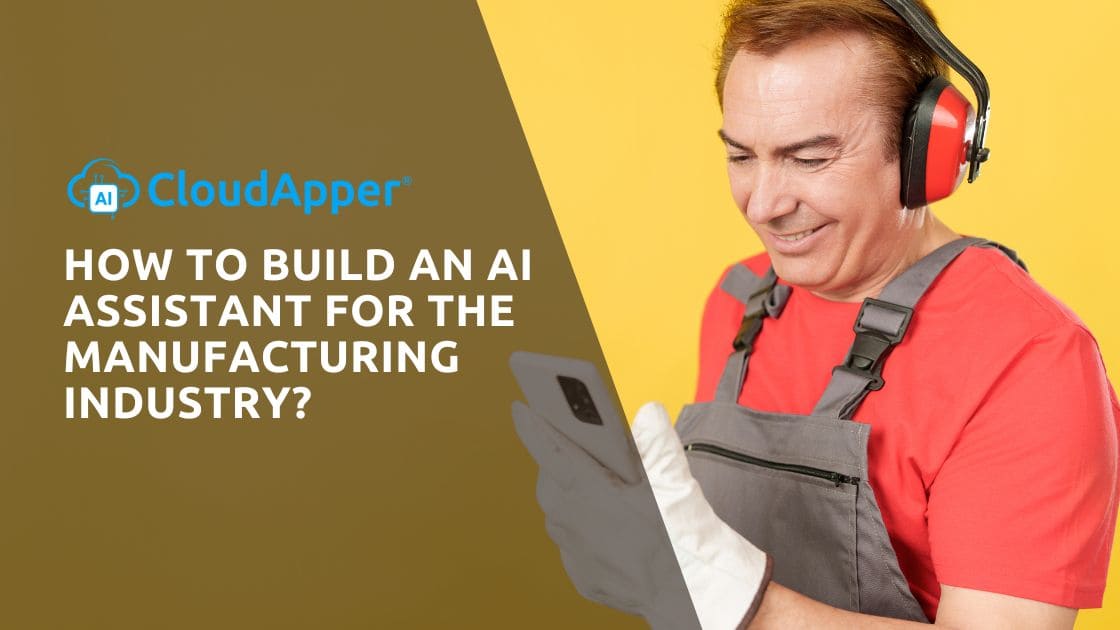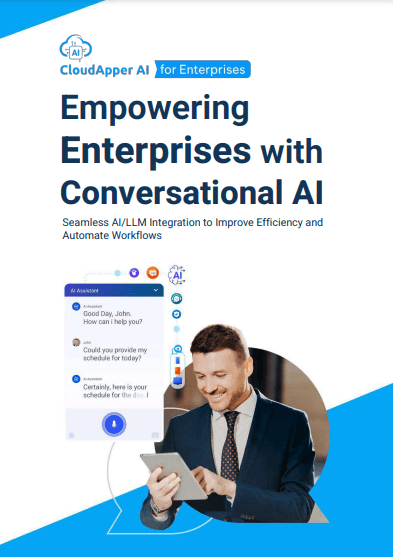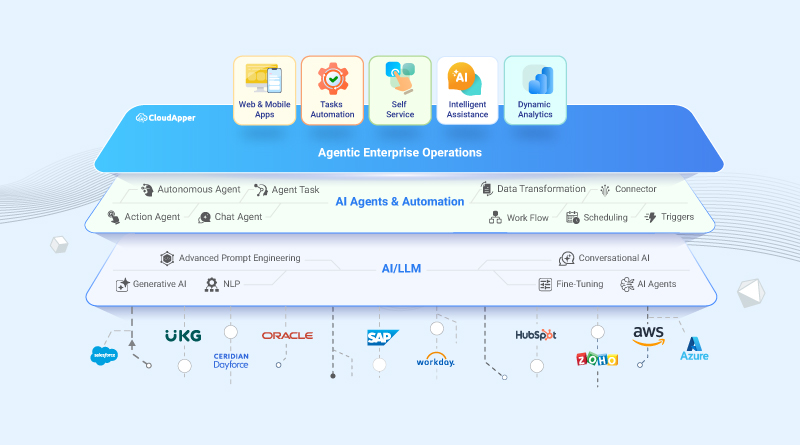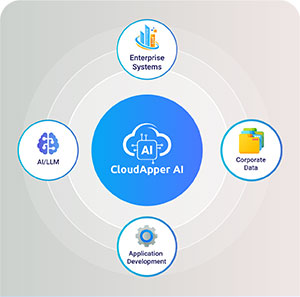Table of Contents
AI assistant integration is bringing in a new era of efficiency, reactivity, and quality control in the ever-changing manufacturing industry. To get to data on the factory floor, workers had to deal with convoluted systems, delay production, and resort to time-consuming manual procedures. Cloud-based virtual assistants enabled by technologies like CloudApper AI, however, allow manufacturers to improve productivity, response time, and customer satisfaction without interrupting production.
Meeting Manufacturing Challenges with AI Assistants
1. Information Retrieval at Your Fingertips
AI assistant integration is bringing in a new era of efficiency, reactivity, and quality control in the ever-changing manufacturing industry. To get to data on the factory floor, workers had to deal with convoluted systems, delay production, and resort to time-consuming manual procedures. Cloud-based enterprise AI solutions assistants enabled by platforms like CloudApper AI, however, allow manufacturers to improve productivity, response time, and customer satisfaction without interrupting production.
2. Enhancing Operational Efficiency
Conversational AI drastically improves production systems and operational effectiveness. Staff members can retrieve information about manufacturing status without leaving their stations. The use of AI assistants has reduced the need for manual interventions throughout the manufacturing process, resulting in both time savings and a smoother flow of production. For 24-hour production lines in particular, when every minute saved adds up to enormous organizational advantages, this efficiency is of the utmost importance.
3. Quality Control Reinvented
Quality control processes benefit significantly from AI-powered assistants. These systems are capable of collecting feedback from the quality assurance operators regarding production flaws, deviations from ideal product specifications, or environmental conditions like temperature. Based on the collected feedback, AI assistants can also provide real-time alerts in natural language, ensuring that production operators are promptly notified of issues that require their attention. This not only enhances the quality control process but also allows operators to allocate their attention strategically, improving overall vigilance and reducing the risk of errors.
Building an AI Assistant with CloudApper AI
1. Initiating the Process
The journey to building an AI assistant for the manufacturing industry begins by reaching out to CloudApper solution specialists. These experts collaborate with manufacturers to understand specific requirements and objectives unique to their production environments.
2. Model Tuning and Data Privacy
CloudApper AI specialists fine-tune the AI model to align with the intricacies of the manufacturing sector. Simultaneously, arrangements are made to ensure the utmost data privacy, recognizing the sensitivity of corporate data within the highly regulated manufacturing environment.
3. Automated Data Training
The next step involves loading corporate data into the CloudApper AI platform, enabling the automatic training of the AI/LLM. This process enhances the AI assistant’s contextual understanding of the manufacturing processes and facilitates more accurate and relevant responses to user queries.
4. User Experience Design
CloudApper AI simplifies the design of the user experience with its intuitive drag-and-drop designer. Manufacturers can customize the AI assistant’s interface effortlessly, ensuring alignment with brand identity and user expectations.
5. Instant Deployment and Integration
With data training completed and the user experience designed, CloudApper AI’s platform instantaneously builds the AI assistant. This ready-to-deploy assistant seamlessly integrates into existing enterprise systems using APIs, ensuring a cohesive and unified experience for both users and the manufacturing processes.
6. Versatility in Application
CloudApper AI empowers manufacturers to embed the AI assistant on their website using a simple HTML code, facilitating real-time interaction with users. Beyond that, the platform allows for the creation of entire applications within minutes, addressing a range of manufacturing queries, automating tasks, and facilitating request submissions. The AI assistant can also be seamlessly integrated into enterprise systems, becoming an integral component of internal processes.
Conclusion
Artificial intelligence (AI) assistants are ushering in a new era of productivity, organization, and quality assurance in manufacturing. In order to ensure optimal performance and a smooth integration into current processes, CloudApper AI’s user-friendly platform equips manufacturers with the tools to develop AI assistants customized to their specific needs. Leveraging AI assistants is becoming not merely a technology advance, but a strategic need for manufacturers to maintain competitiveness, decrease mistakes, and drive continuous improvement in today’s fast-paced production environment.
What is CloudApper AI Platform?
CloudApper AI is an advanced platform that enables organizations to integrate AI into their existing enterprise systems effortlessly, without the need for technical expertise, costly development, or upgrading the underlying infrastructure. By transforming legacy systems into AI-capable solutions, CloudApper allows companies to harness the power of Generative AI quickly and efficiently. This approach has been successfully implemented with leading systems like UKG, Workday, Oracle, Paradox, Amazon AWS Bedrock and can be applied across various industries, helping businesses enhance productivity, automate processes, and gain deeper insights without the usual complexities. With CloudApper AI, you can start experiencing the transformative benefits of AI today. Learn More


















